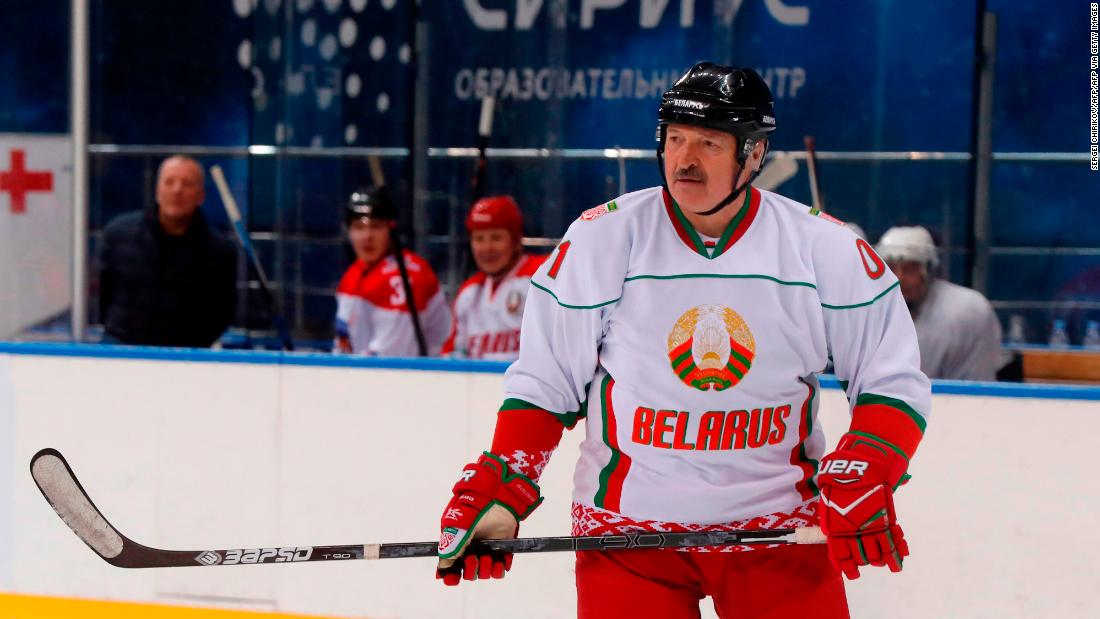[ad_1]
I was just shy of 10 years old on that date. My parents and other adult relatives recalled in later years how, when told about the explosion some days later, the only advice they remember receiving from the government was to wash themselves more often.
Then, as now, there was fear of the unknown — people knew something had happened, but without much information, they didn’t know what else to do. So they carried on. Like we buy masks today, they bought dosimeters, handheld devices used to measure radiation. Many women, my mother included, bought her own dosimeter and took it to the grocery store to measure the radioactivity of the food she was buying for her family.
I can’t recall the exact day we were told, but I remember my parents going out to march in the traditional May 1 workers’ parade without any hesitation, so it certainly wasn’t until after that date.
But this is old news. We’ve learned from the benefit of historical hindsight, from esteemed journalists like Svetlana Alexievich and Adam Higginbotham, who have written intensely researched, award-winning books on the subject, and even from popular culture, most recently in the eponymous HBO series, not just the details of the Chernobyl tragedy, but how they were covered up and kept from the Soviet people.
A question about Chernobyl today isn’t what happened there, but what we learned from this tragedy, if anything, and how we might apply those lessons in our response to the frighteningly similar terror of coronavirus.
So how is Belarus handling the crisis? There are many similarities between the literal fallout of Chernobyl and the figurative fallout of the Covid-19 virus. The radiation from Chernobyl was terrifying in its invisibility. And in coronavirus we are again fighting what many have dubbed an “invisible enemy.”
It would seem like Belarus would be a country uniquely suited to take the lessons of Chernobyl and apply them today. So why is the advice Belarusians are getting the same as before? Have the nation’s leaders learned anything from the lessons of Chernobyl?
It would seem not. Unlike almost every other country on earth, Belarus is laughing off the threat of coronavirus; in fact, the President, Alexander Lukashenko, has gone so far as to say that the virus, or at least concern over it, is a “psychosis” that can be easily cured with vodka and a trip to the sauna.
It seems that Belarus has not yet — and maybe never will — reckon with the events of Chernobyl, and this is echoing in its present. When you ask the older generation in Belarus what they think about the Soviet government’s reaction to the tragedy at Chernobyl, they don’t register shock or anger. Most of them say it’s better to leave the past in the past; after all, what can be done about events that happened decades ago?
And when asked about their current president’s response to Covid-19, they say that in times of crisis it’s not helpful to speak bad about your country.
Having left my native country many years ago, I have seen how other countries deal with the dark times in their history. The United States still wrestles with the scourge of slavery; Germany and Japan’s political and social structures are designed to prevent a repeat of the horrors wrought by their leaders during World War II. Yet Belarus hasn’t done much to confront its past.
What is the real invisible enemy? Is it a microscopic virus or unseen radiation particles in the air? Or is it an unwillingness to wrestle with events now invisible in contemporary life because they have never seen the light of day?
Alexievich recently praised the Chernobyl series for unveiling the events of the tragedy to a new generation of Belarusians, noting that it “struck a chord” with young people there. I asked my mom today if she had seen the show. She told me she wasn’t interested. She already knew what happened, so what was the point of reliving it?
But I find some hope in the show’s resonance with Belarusian youth. They watched the series, and they’re watching how their leadership is responding to this most recent crisis. In contrast to the Soviet generation, young Belarusians are skeptical of being told to drink vodka every day and go to the sauna to kill Covid-19. Friends my age and younger are far more likely to stay home and practice social distancing than my parents.
While it is true that washing your hands will help protect you from the coronavirus, it’s not enough.
It’s time for a reckoning with reality, not just with the events of today, but with those of the past — for the sake of the future.
[ad_2]
Source link


